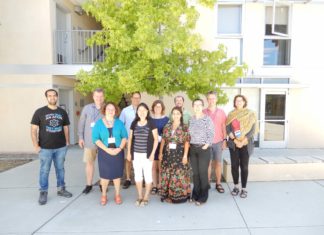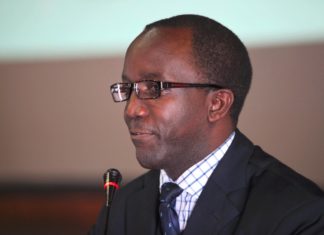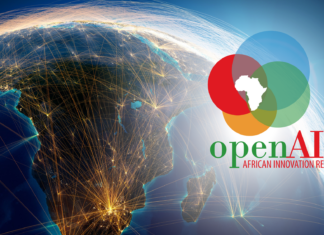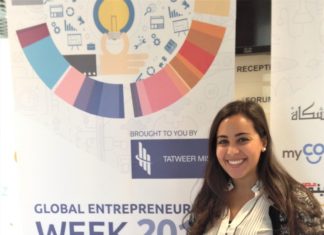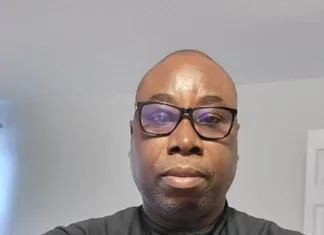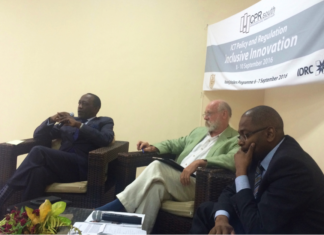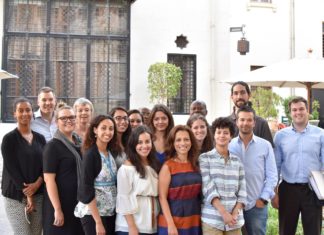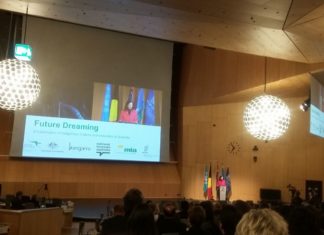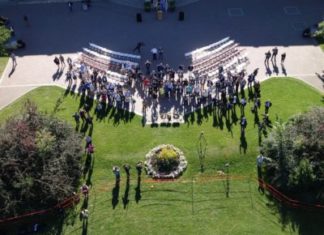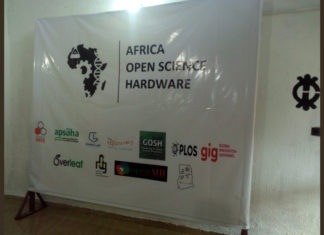The Many Faces of Scholarly Communications
By Nagham El Houssamy
The FORCE11 Scholarly Communications Institute was held at the University of California San Diego from 31 July until 4 August 2017....
Dr. Kakooza “Dealing with Trans-Border Quasi-Intellectual Property”
In October 2010, Yoweri Museveni, the President of Uganda, recorded a rap song titled: "Do You Want Another Rap?" as part of his re-election campaign to capture the imagination of young voters. The song was a huge success and may have played a part in his reelection. When Museveni applied for a copyright registration of the song, however, members of the Ankole community filed an objection stating that the song was derived from Ankole folklore. While the Registrar of Copyrights in Uganda eventually allowed Museveni's copyright application for registration, this case triggered Dr. Anthony Conrad K. Kakooza's interest in the area of traditional cultural expressions (TCEs) and whether TCEs should be recognized within the domain of intellectual property (IP) law.
Appel à soumissions : Perspectives africaines sur la régulation de l’innovation
Le Réseau Open AIR est heureux d’annoncer un appel à soumissions pour un atelier international et une publication sur le thème de la régulation...
El Houssamy Presents at Egypt Entrepreneurship Summit
The Summit was part of a series of events that took place in Egypt in conjunction with the Global Entrepreneurship Week. A2K4D’s Senior Research Officer, Nagham El Houssamy, participated in the summit, speaking on the Data-Driven Innovation Panel on Friday, November 18.
Waiting for An Inclusive Pathogen Access And Benefit Sharing Policy
By Anthony Oguguo, QEScholar and PhD Student, Faculty of Law, University of Ottawa, Canada
The inadequacies of the global health law framework during the pandemic...
Inclusive Innovation: Lessons from Africa for the World’s ICT Policymakers
Information communication technologies (ICT) can play a crucial role in promoting development, making societies more just, equitable, and inclusive of marginalized communities. To see how, some of the brightest young researchers from the “global South” met with established field leaders at the IDRC and COSTECH-sponsored 2016 CPRsouth conference in Zanzibar.
June Open AIR Network Meeting in Cairo
When SSHRC and IDRC awarded sizeable, prestigious grants to support Open AIR in its third phase of research, the Network’s leadership promptly organized a face-to-face meeting at its North African Hub, the American University of Cairo. While a great strength of Open AIR is its ability to coordinate its research and administrative tasks remotely across its various hubs, personal meetings are invaluable when the Network needs to deal with specific overarching strategic issues.
WIPO 33rd IGC Session Puts Traditional Cultural Expressions (TCEs) on the...
The WIPO-IGC recently commenced the next installment of its deliberations for a text-based instrument that focuses on the protection of traditional cultural expressions (TCEs), pursuant to its mandate. There are two scheduled forums on TCEs beginning Feb 27-March 3 and to be completed in June 2017, which will round off the Committee’s work for the 2016-17 biennium.
How Designing Crops for Global Food Security and Open AIR are...
By Meghan Blom
Open AIR aims to understand how open collaborative innovation can help businesses scale up and seize the opportunities of the global knowledge economy....
Making at AFRICAOSH Summit 2018
By Outlwile Maselwanyane
The first gathering for Africa Open Science & Hardware (AfricaOSH) was hosted by Kumasi Hive innovation hub, Kumasi, Ghana, on April 13-15...

